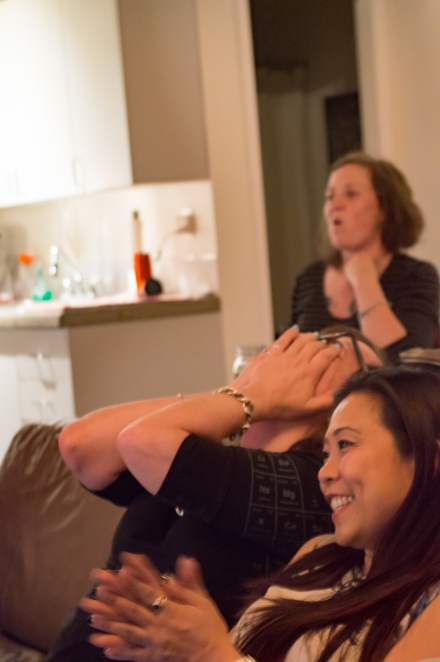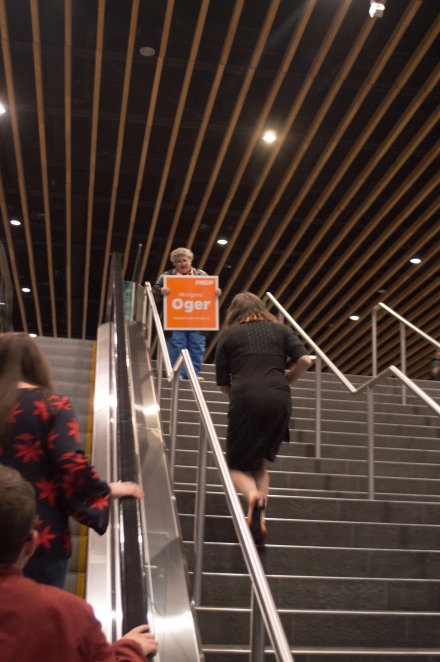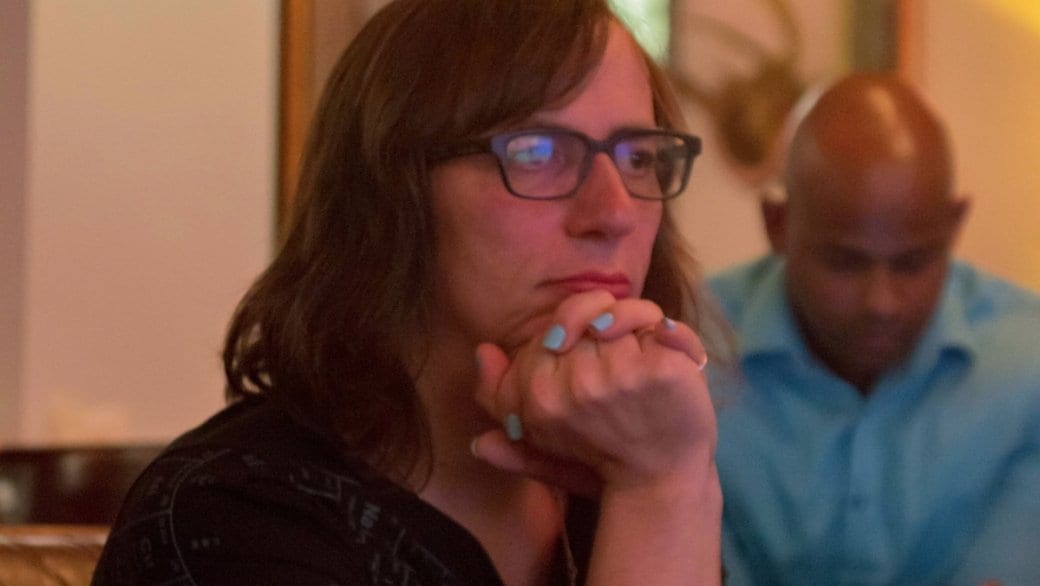After a rollercoaster of an election night, when at times she seemed poised to become the first transgender person elected to Canadian public office, Morgane Oger is coming to terms with the fact this is not likely going to be the case.
The preliminary election results in Vancouver-False Creek show BC Liberal incumbent Sam Sullivan ahead of the NDP’s Oger by 560 votes. Although absentee ballots have yet to be counted, Oger acknowledges it would be a long shot for those votes to sway the election in her favour.
“Indications are that Sam Sullivan won this election. And we will really know on the 22nd [of May] by how much,” she says. “We need to see what the final count is.”
In an email to Xtra, Andrew Watson, communications manager for Elections BC, says his office estimates there were roughly 176,000 absentee ballots cast in this year’s election province-wide. It’s not known how many of those ballots were cast in Vancouver-False Creek.
“We don’t have an electoral district breakdown yet but will publish one before final count starts on May 22,” Watson says.

In the wake of May 9’s preliminary results, Oger says she’s staying positive. Like their respective parties more broadly, the race between Oger and Sullivan was neck and neck for most of the night. One candidate would take the lead only to later be overtaken by the other.
“I think I had every emotion. There was this elation that [our campaign] had worked, and then this horror as it went from ‘it worked’ to ‘it failed,’ and then relief that it worked and then dismay again,” she says.

At 11pm, with just six ballot boxes remaining, Oger was leading by 48 votes. She and her team came to NDP headquarters preparing for what looked like victory.
“At one point I was practising my speech — and then at another point I was looking at the numbers and it said the votes were 100 percent counted,” she says.
But despite the outcome so far in Sullivan’s favour, Oger says her campaign can be proud of how close she came to winning as an NDP candidate in a Liberal stronghold.
“This riding was considered almost un-winnable,” she says. “It means finally in Canada a transgender person can — if properly supported and properly engaging with the experience required to have credibility as a candidate — a transgender person can take a fight to [an establishment] candidate.”

Oger attributes the closeness of the race to public fatigue with the BC Liberals. She also suggests that her work on a broad range of issues, such as education, and her background in the tech sector made her relatable to a larger constituency. She believes her advocacy work on trans and human rights issues alone would not have been enough to propel her to office.
“It’s important to appreciate that being an advocate for a tiny percentage of the population is not enough to get elected. One has to have done things that touch the mainstream,” she says. “This is what I encourage the transgender community and the LGBT community to do. Touch the mainstream. It’s the mainstream that elects you.”

She says it’s unclear what impact a series of transphobic flyers plastered throughout her riding may have had on her chances of being elected, but she describes them as “horrifying” and “destabilizing” to her campaign.
“They forced us to focus on that some days. And that was detrimental, that harmed us,” she says, referring to time diverted to speaking with the police, filing a complaint with Elections BC, and crisis-management team meetings. She says the team was forced to cancel some engagements while dealing with the poster issue. “Cancelling an engagement within the last 10 days of an election — that has consequences.”
Still, though neither Oger nor the other three openly trans candidates were elected May 9, Oger says this election has been groundbreaking.
“I was very encouraged within our community to see the love and the hope,” she says. “I hope that everybody appreciates this was a major win for the transgender and the LGBT community, that we can be satisfied that anybody can run who’s credible.”

 Why you can trust Xtra
Why you can trust Xtra


